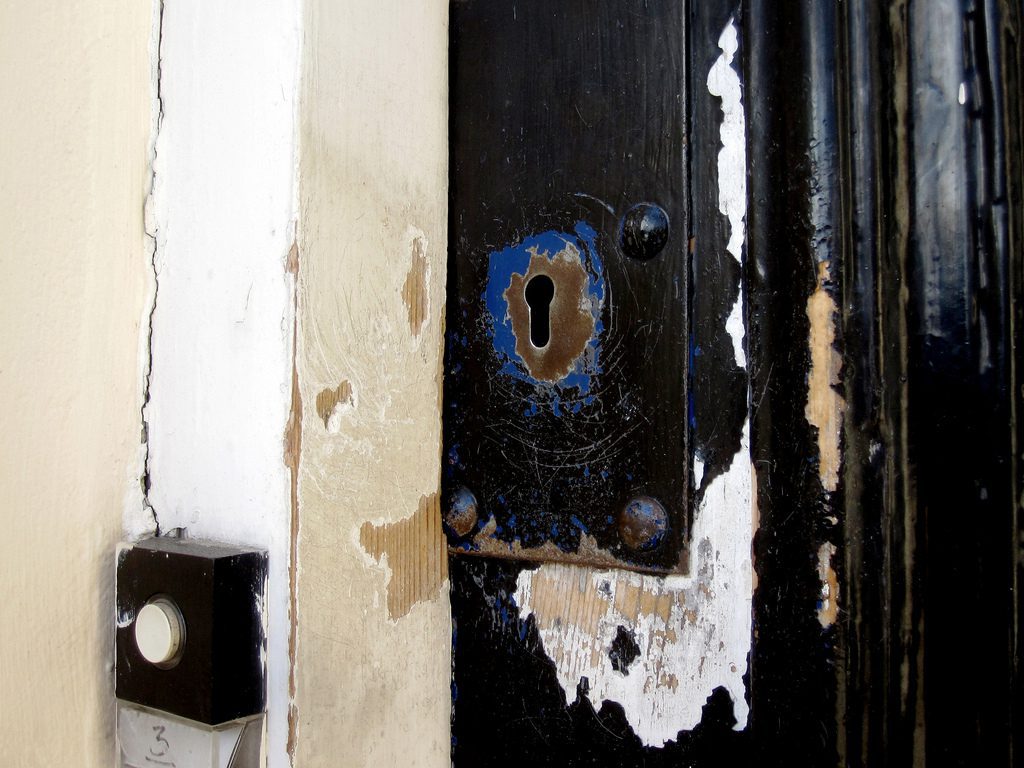A lot of properties that are sold are listed “as-is.” This usually discourages buyers or at least makes them suspicious. There is nothing wrong about being cautious when buying a home. On the contrary, we highly recommend it. However, a home listed “as-is” is not necessarily in poor condition and there is no reason to ignore all the offers that are made “as-is.” A lot of these offers are interesting and can be advantageous to the buyer.
There are a number of factors that determine whether an “as-is” offer can be advantageous or too dangerous. Here is a list of the five most important things to consider when buying an”as-is” home.
What an “As-Is” Offer Means
When a property is listed “as-is,” it is being sold in its current condition and the seller is not going to make any repairs. Furthermore, the seller is not making guarantees as to the property’s condition, so the buyer gets the home without any warranty. Of course, the seller is required to disclose all the defects (including hidden) of the home that he or she is aware of but not the ones he or she is not aware of. Often times the house is being sold “as is” because the true seller of the house can not vouch for any repair work that has been done….they actually may be the Power of Attorney for someone who has memory issues.
This is when purchasing a property in “as-is” condition might be the norm. Many homes listed “as-is” are part of a foreclosure or an estate sale in which the seller is not familiar with the condition of the property. However, it is wrong to assume that there must be something wrong with all as-is listings. In addition, a home inspection may already exist or the buyer can have a home inspection carried out and decide accordingly. It is all part of a Buyer’s due diligence.
Why “As-Is”?
There can be different reasons why a property is being sold “as-is”. The seller might not have the funds to make repairs if he or she lives on a fixed income or goes through a job loss or divorce. Another scenario might be that he or she just does not want the hassle and inconvenience of doing repairs or does not have time fix the problems in case of minor faults. For example, if something is a bit damaged or worn but works without any problem, the seller might prefer to disclose that there is an issue and leave the buyer to decide whether to fix it or not. Strangely, some sellers feel that they were sold the house with a plugged drain, that they never needed to unplug, so why should they not sell it to the next party as they found it….
Other cases might be that the seller recently inherited the property and is reselling it and he or she has not lived there and is not aware of the issues. He or she might not want any responsibility for fixing problems that might occur after the sale. In addition, bank-owned properties are quite often sold “as-is” because banks are not interested in investing into repairs or in giving warranties. In any case, it is important that a potential buyer acquires as much information about the house and the reasons why it is being sold as possible, but “as is” just means that the Seller is not in a position to give any warranties.
Inspection Clause
“As-is” listings should be as attractive to potential buyers, you must just make sure that you do your research. However, all buyers can use contract law to protect themselves so that they can enjoy the benefits of “as-is” listings. Instead of ignoring and rejecting homes that are listed “as- is,” potential buyers can include an “conditional on inspection” clause in the purchase offer. An inspection condition is part of the buyer’s offer that states that after the seller accepts the purchase offer, the buyer hires a professional inspector and then decides whether he or she wants the property or not based on the outcome of the inspection. This allows the buyer to back off from a deal that would require too much budget for repairs and renovations without penalty.
Choosing the right home inspector is very important, considering that you’re about to make one of the biggest financial decisions in your life based on a single report. Make sure your inspector is licensed and has good recommendations. It is always a plus if the inspector belongs to one of the professional home inspections organizations.
Know Your Options
You don’t have to walk out from the deal with your deposit when a professional inspector finds that the house has some issues that would require costly repairs. If you are truly interested in the home and already planned to do some remodelling, you can negotiate a better price that will cover the costs of fixing the hidden flaws. Especially in markets with an abundance of sellers but a lack of buyers, you might end up purchasing the property for a lower price.
Buying a home “as-is” might be reasonable if you are planning to carry out significant renovations. When you don’t mind that certain parts of the house are in need of renovation because you would change them anyway, you can save significantly if you choose an “as-is” property.
Are You Able to Do the Repairs?
Even though purchasing an “as-is” property might be cheaper than buying a similar property in the neighbourhood, you have to add the costs of repairs and renovations when evaluating the total costs of the purchase. Not only do you have to prepare your budget, but repairs and renovations will also require a lot of time, effort, and nerves.
Buying a house that needs repairs is always a project, and you have to be well educated and thorough when deciding whether the repairs are doable. Another important factor to consider when you decide to purchase a house with challenges is whether there will be any problems obtaining insurance. The whole transaction might turn out to be disadvantageous if you are not able to get insurance or have to pay excessively high premiums. However, most insurance companies will stage the insurance if you guarantee them that work will be down within the first few months of ownership. Banks will also provide finance for renovations and then add those amounts in a staged fashion.
Even though purchasing an as-is home means a certain amount of risk, potential buyers can find some very good deals among the listings. However, it is important that potential buyers understand the risks and are able to protect themselves and be prepared to deal with repairs and renovations. Always move forward with as much information as possible…Reno’s can be fun and creative but always be prepared for surprises that arise.



